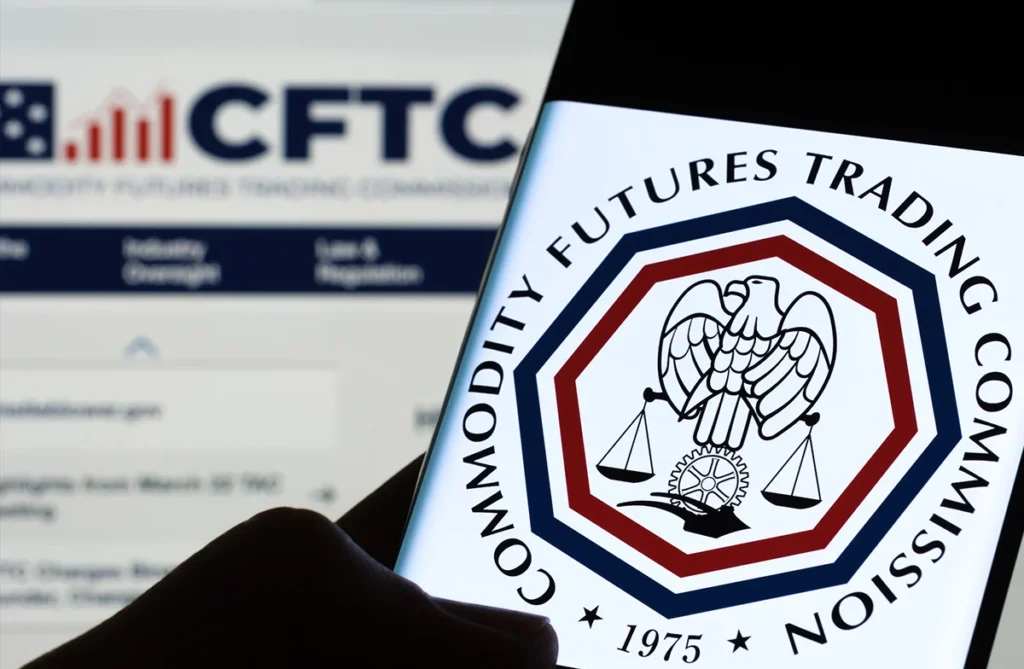Acting Commodity Futures Trading Commission Chairman Caroline Pham has appointed Brian Young, a former Justice Department prosecutor, to serve as interim director of the agency’s enforcement division, marking an unusual transition period leadership choice at the derivatives market regulator.
Young, who joined the CFTC in February as director of its whistleblower award program, replaces Ian McGinley, who departed last Friday. The appointment came as part of a broader leadership restructuring announced Thursday by Pham, who assumed the role of acting chairman when President Trump took office on Monday.
The selection of Young represents a departure from typical CFTC practice, where enforcement leadership during transitions usually falls to the division’s deputy director until a Senate-confirmed chairman makes a permanent appointment. President Trump has yet to nominate a permanent CFTC chair.
Young brings substantial prosecutorial experience to the role, having spent nearly two decades at the Department of Justice. His tenure included serving as acting director of litigation for the antitrust division and over ten years in the criminal division’s fraud section. His prosecution record includes significant commodities-related cases, notably securing convictions in the Libor rate manipulation trials and the 2020 prosecution of two precious metals traders for “spoofing” – the practice of placing and quickly canceling orders to manipulate market prices.
Historical Context: CFTC’s Evolution as Market Regulator
The appointment comes at a critical juncture in the CFTC’s history. Established in 1974 through the Commodity Futures Trading Commission Act, the agency emerged from its predecessor, the Commodity Exchange Authority, which had regulated agricultural futures markets since the 1920s. The CFTC’s creation reflected Congress’s recognition that derivatives markets had grown far beyond their agricultural origins to encompass a wide range of financial instruments.
The agency’s enforcement powers have expanded significantly since its founding. The 2008 financial crisis led to dramatic changes through the Dodd-Frank Act of 2010, which granted the CFTC broader authority over the swaps market and strengthened its enforcement capabilities. This expansion included new anti-fraud and anti-manipulation authority, allowing the agency to pursue cases like the Libor scandal that Young prosecuted at the DOJ.
The CFTC’s enforcement division has historically maintained a delicate balance between market oversight and innovation. Major cases have included actions against energy trading manipulation in the early 2000s, foreign exchange trading violations, and more recent cryptocurrency-related enforcement. The agency’s whistleblower program, which Young previously led, has become increasingly significant since its 2010 establishment, leading to numerous major enforcement actions and over $330 million in awards to whistleblowers who provided crucial information.
Current Transition
Pham, who was sworn in as a CFTC commissioner in 2022, took over as acting chair following Rostin Behnam’s announced departure coinciding with Trump’s inauguration. Her leadership appointments include several senior policy and legislative roles, including new acting chief of staff and acting general counsel positions.
The transition occurs as the derivatives market faces evolving challenges, including the continued integration of digital assets, environmental commodity markets, and complex trading algorithms. Young’s prosecution experience, particularly in cases involving market manipulation and technology-enabled trading schemes, aligns with these modern regulatory challenges.
Industry observers note that while temporary leadership appointments during presidential transitions are common, the selection of a recent agency hire with Young’s prosecution background for the enforcement role signals potential priorities for the interim period. The permanent direction of the agency’s enforcement efforts will likely become clearer once President Trump nominates, and the Senate confirms, a permanent chairman.


